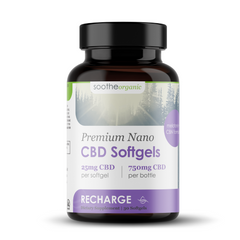The endocannabinoid system (ECS) is a complex and fascinating network that plays a crucial role in maintaining overall health and wellness in all vertebrates. It is comprised of a network of cannabinoid receptors, endocannabinoids, and metabolic enzymes that work together to regulate various physiological functions such as sleep, metabolism, mood, appetite, stress, and pain.
Despite being discovered relatively recently, the ECS has become a subject of intense scientific research and has the potential to revolutionize how we view and treat various health conditions. The ECS has been the subject of much research, and scientists are still uncovering new information about this system and its functions.
Understanding the ECS and its mechanisms can unlock the power of this system to develop and explore alternatives for maintaining wellness. In this article, we delve deeper into the components and functions of the ECS, explore the effects of phytocannabinoids on the system, and discuss its importance in maintaining overall health and well-being.
By examining the ECS in detail, we can start to understand how it can be utilized to enhance our health and well-being, and unlock its full potential.
Key Takeaways
- The endocannabinoid system (ECS) is a complex network that helps maintain overall health and wellness in all vertebrates.
- The ECS affects physiological functions.
- The ECS uses three critical components: cannabinoid receptors, endocannabinoids, and metabolic enzymes.
- Endocannabinoids work as retrograde signals and can help regulate inflammation.
ECS Components and Functions
The endocannabinoid system (ECS) is a complex and fascinating network that plays a crucial role in maintaining overall health and wellness in all vertebrates, including humans and pets like dogs. Discovered relatively recently in the early 1990s, this intricate system has become a focal point of intense scientific research, revealing its potential to revolutionize how we approach and treat various health conditions. Comprising a network of cannabinoid receptors, endocannabinoids, and metabolic enzymes, the ECS works synergistically to regulate key physiological functions such as sleep, metabolism, mood, appetite, stress response, and pain management.
Scientists continue to uncover new insights into the ECS, highlighting its role in homeostasis—the body's ability to maintain internal balance despite external changes. This system isn't just limited to humans; it's present in animals too, making it relevant for pet health as well. For instance, CBD for dog anxiety has gained attention as a natural way to support the ECS in canines experiencing stress or separation issues. Understanding the ECS and its mechanisms opens doors to exploring natural alternatives, such as CBD products for pets, for enhancing wellness without relying solely on traditional pharmaceuticals.
In this comprehensive article, we delve deeper into the components and functions of the ECS, explore the effects of phytocannabinoids like CBD on this system, and discuss its profound importance in maintaining overall health and well-being. By examining the ECS in detail, we can appreciate how it can be harnessed to promote balance, reduce discomfort, and support mental health. Whether you're dealing with personal anxiety, chronic pain, or even helping your furry friend with stress, unlocking the ECS's power through informed choices—like USDA organic CBD tinctures or softgels—could be transformative.


Frequently Asked Questions
How does the endocannabinoid system interact with other bodily systems?
The ECS interacts extensively with the nervous, immune, and endocrine systems, using receptors and endocannabinoids to regulate sleep, appetite, pain, and stress for homeostasis and wellness.
What are the potential implications of an imbalanced endocannabinoid system?
Imbalances may result in CECD, contributing to anxiety, depression, or chronic pain. Natural alternatives like CBD can help restore balance.
Can the endocannabinoid system be targeted for therapeutic purposes?
Yes, the ECS's regulation of mood, pain, and sleep makes it a prime target for therapies, including CBD for anxiety and depression or pain relief.
How do different phytocannabinoids interact with the ECS?
CBD primarily engages CB2 for anti-inflammatory effects, while THC targets CB1. These interactions support wellness, as seen in CBD tincture for pain or softgels for daily use.
Are there any lifestyle factors that can impact the functioning of the ECS?
Stress, poor diet, inactivity, and toxins can impair the ECS, potentially leading to deficiency. Exercise and CBD supplementation can mitigate these effects.
CBD sleep apnea, organic sleep gummies, cbd energy drink, best sleep gummies, best thcv gummies, best delta 9 gummies, thcv gummies, cbd gummies for anxiety, CBD oil Casper Wyoming, Casper CBD store, CBD gummies Casper, CBD tinctures Casper, Hemp-derived CBD Casper, CBD products in Casper, Best CBD shop Casper, CBD capsules Casper Wyoming, Casper CBD hemp products, CBD for sale Casper






